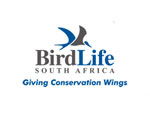
Top stories






More news


Marketing & Media
Ads are coming to AI. Does that really have to be such a bad thing?














Because much of the country is unsuitable for cropping, wildlife and meat are especially important.
Tourism - especially wildlife tourism - contributes about 8.6% of South Africa's gross domestic product (GDP), according to the World Travel and Tourism Council. Agriculture contributes an estimated 3% to GDP. The Department of Agriculture, Forestry and Fisheries estimates animal products raised a total of R65.5m in 2010.
"It would be a disaster (if South Africa lost its vultures). They are right on top of the food chain and my gut feeling is that their loss would have a serious impact on the entire ecology," says Verdoorn. The chemistry professor and raptor expert was at the weekend's official launch of a R500,000 hide and vulture restaurant at the Golden Gate Highlands National Park.
The hide is a collaborative effort between Sasol and South African National Parks Honorary Rangers (Free State and KwaZulu-Natal regions).
Vultures are endangered worldwide, and of South Africa's nine vulture species, seven are listed in the International Union for Conservation of Nature's (IUCN's) Red Data Book of Birds of SA, Lesotho and Swaziland as facing a certain degree of threat of extinction.
According to the IUCN the birds' decline has been due to a lack of food, as well as a reduction in wild grazing mammal numbers, habitat loss and collisions with power lines.
They have also been poisoned by carcasses laced with insecticide. The bait is intended to kill livestock predators such as hyenas, jackals and big cats, but also kills vultures.
Golden Gate's new hide and restaurant is part of the International Vulture Conservation initiative, and has been established specifically as part of the Maloti Drakensberg Transfrontier Conservation Area that straddles the border between Lesotho and South Africa.
Of the 23 known vulture species, the world's only known "obligate scavengers" - animals that only feed on carrion - 14 (61%) are threatened with extinction, with the most rapid declines occurring in "vulture-rich" Asia and Africa, according to a paper published by the New York Academy of Sciences.
The Endangered Wildlife Trust projects that some vulture species could be extinct in this country in the next few years.
"Stimulated by rapid urbanisation and high levels of unemployment the demand for traditional medicines is probably higher than at any time in the past. An estimated 160 vultures are solda year in eastern South Africa, and there are some 59,000 consumption events of vulture pieces annually in this region," the trust says.
The non-governmental organisation estimates that annual sales of vulture parts bring in R1.18m every year.
Verdoorn says he has "no problem" with traditional medicine's collection of vultures if it is done according to age-old custom, but the enterprise has gone commercial in recent years, which is a different matter.
Moreover, in South Africa power lines are an acute problem for vultures, although energy utility Eskom is installing "bird-friendly" pylons so that this threat is reducing, Verdoorn says. "A single power line can take out as many as 40 vultures in two years," he says.
"The decline of other carnivores from lions and hyenas to yellow-billed kites means that vultures are increasingly important as nature's clean-up crew," he says. "The vultures can also alert farmers to dead or sick animals, and other scavengers and carnivores to carcasses in the veld."
PVerdoorn says scientists have learned that vulture restaurants can aid conservation by keeping the raptors away from livestock - thus reducing farmers' hostility towards them - and ensuring the birds have access to poison-free food and luring them away from unsafe power lines.
Sasol sponsorships chief Richard Hughes says that the petrochemical company's 25-year relationship with the Endangered Wildlife Trust has seen it fund population monitoring, work with Eskom on the bird-friendly power lines, and with farmers - as well as fund scientific equipment and tourism features, such as the new Golden Gate hide and restaurant.
Golden Gate Highlands National Park manager Johan Taljaard says the park has wanted to build the hide since 2005, but has not had the funding.
Further plans include a R50,000 Sasol sponsorship towards the construction of the access road, parking area and a pathway.
Source: Business Day via I-Net Bridge

For more than two decades, I-Net Bridge has been one of South Africa’s preferred electronic providers of innovative solutions, data of the highest calibre, reliable platforms and excellent supporting systems. Our products include workstations, web applications and data feeds packaged with in-depth news and powerful analytical tools empowering clients to make meaningful decisions.
We pride ourselves on our wide variety of in-house skills, encompassing multiple platforms and applications. These skills enable us to not only function as a first class facility, but also design, implement and support all our client needs at a level that confirms I-Net Bridge a leader in its field.
Go to: http://www.inet.co.za